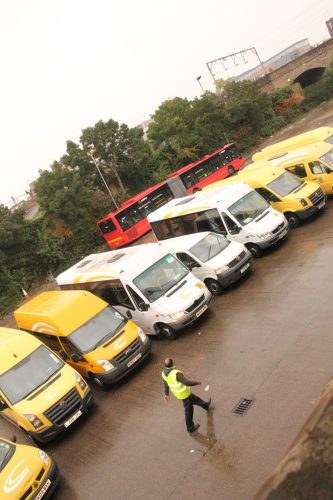
HCT Group CEO highlights that CT operators have followed the advice of successive governments and should now be supported in gaining O-licences
Dai Powell, CEO of HCT Group, has written a long blog post on the recent Department for Transport (DfT) advice to Section 19 and 22 operators (CBW1303), stating that the DfT stance represents a complete policy reversal and calling for assistance to grant Community Transport (CT) operators O-licences.
He wrote: “HCT Group is proud to be part of the Community Transport (CT) sector and, as such, we believe that the recent DfT advice on Section 19 and 22 Permits has some profound implications for our movement – even though the way we operate means that HCT Group is barely affected.
“Over the past 20 years, the DfT has advised and successive governments have encouraged the CT movement to earn their keep through trade, to become more self-sufficient and robust as operators. CT operators have done exactly what has been asked of them. The advice, as it stands, marks an abrupt reversal of policy that will have far-reaching implications; it is the very model of a wrenching regulatory change.
“For all of my concerns about the impact of the advice on CT operators, these pale into insignificance when set against my concerns for the beneficiaries and service users.
CT exists to support the most vulnerable in society. It exists to ensure access to those things that so many people in society take for granted, providing an essential component of the struggle to combat loneliness and isolation.
“In study after study, research on social isolation and loneliness amongst older people shows its impact on mortality – those who suffer from social isolation are 29% more likely to die than those who do not. Yet 975,000 older people in the UK say that they are often or always lonely. Supporting people to get out and about saves lives.
“In a difficult and unequal society, so many CT operators are trying to tackle these issues, doing what is best and good about our nation.
“The heart of my contention is that the DfT advice touches not solely upon a narrow point of transport regulation, but also on the independence of hundreds of thousands, if not millions of vulnerable people. These are the shoals of unintended consequence writ large.
“To navigate these issues, the DfT’s consultation must embrace the debate about what sort of society we want to live in, what sort of society we want to try and create.
“We need to support CTs to get O-licences, if that is what they want. HCT Group will be working on a programme where we can support CTs to do this over the next few months and hopefully we can announce something in the Autumn.
“We also have the Bus Services Act, which we need to ensure is taken up by more and more areas of the UK. This at least puts the passenger at front and centre of the debate. But this alone will not be a solution. We need to urgently take forward the idea of Mobility-as-a-Service and ensure that technology enables people, and all people, to have control over their mobility. We need to reduce the numbers of children on SEN transport by providing alternative solutions that open up life chances as well as reducing Local Authority budgets!
“But most of all we must concentrate and double our efforts on the things that make us unique. We must not let this decision reduce our commitment one iota to our service users – to those people who rely on our services and we must keep fighting to reduce loneliness and isolation every day.”

